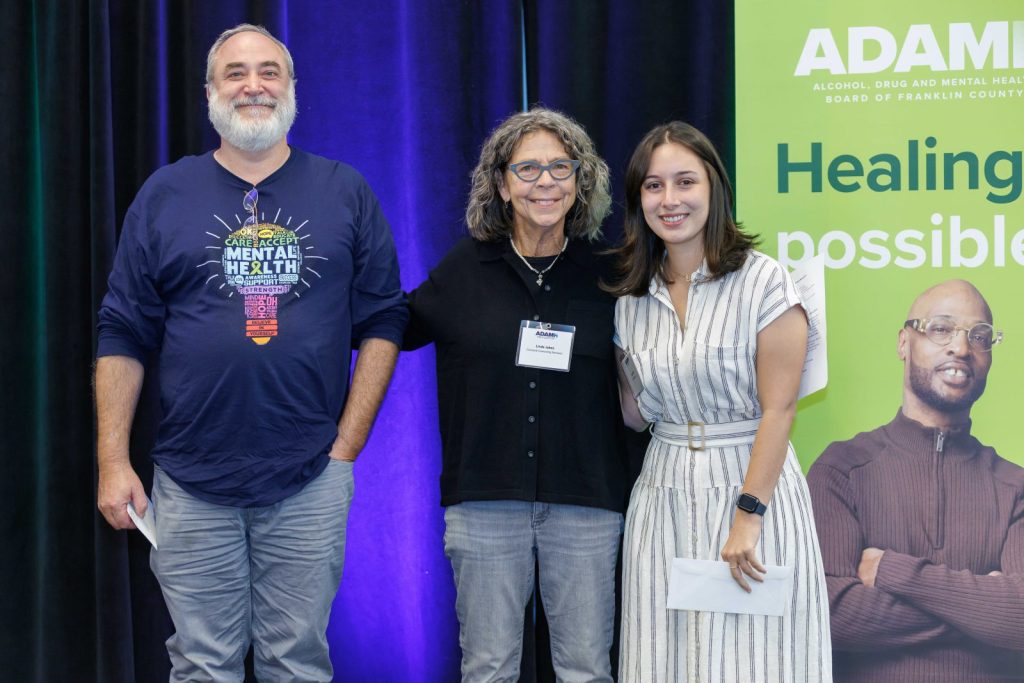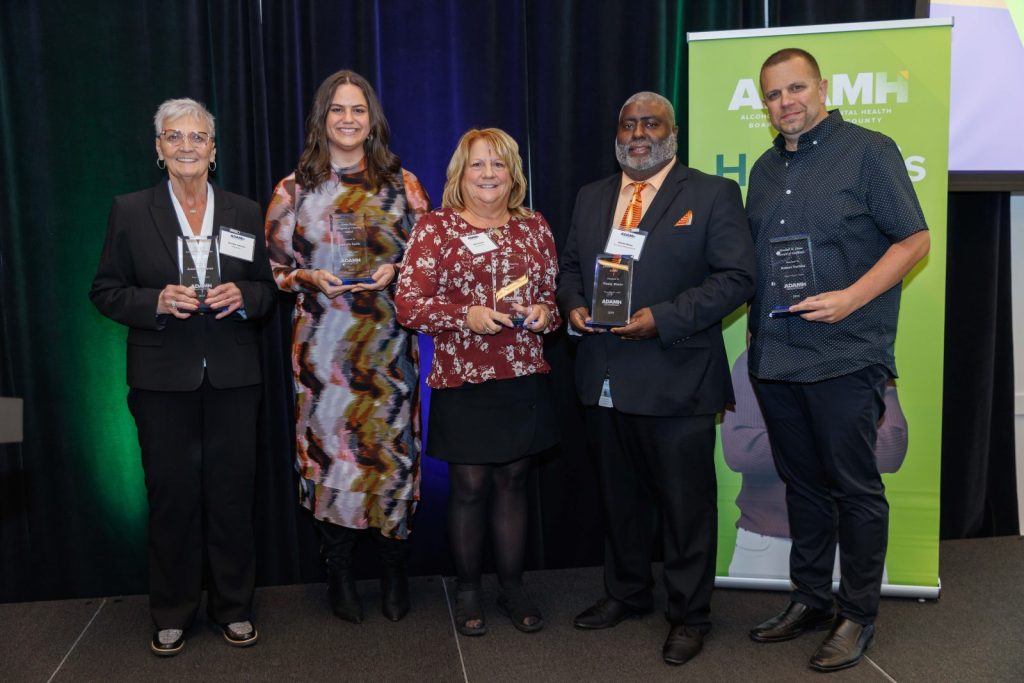ADAMH’s 2024 Annual Meeting on Oct. 16 gathered network providers, community partners and elected officials to highlight the new frontiers in mental health prevention, as well as to celebrate the outstanding contributions of behavioral health professionals in our network.
The meeting kicked off with a message about building resilience from Eric Sowers, a U.S. Army veteran who served in Afghanistan and is currently pursuing his Ph.D. through the Ohio State University College of Social Work. His research aims to positively impact veterans’ transition into civilian life, helping them remain in good legal standing, empowering them to become leaders within their communities and preserving their dignity.
Eric was followed by Erika Clark Jones, ADAMH CEO, whose opening remarks focused on state and local trends related to mental health and substance use. Building on these trends, Erika emphasized the importance of prevention programming and introduced keynote speaker Dr. Scott Langenecker, who presented on the State of Ohio Adversity and Resilience (SOAR) study.
Dr. Langenecker is a researcher on the SOAR Leadership Team. The SOAR study is a first-ever, multi-generational study that will uncover the biological, psychological and social patterns related to mental health and addiction.
During his presentation, Dr. Langenecker explained that while Ohio is at the epicenter of a national crisis of "deaths of despair" — including suicide, drug overdoses and alcohol-related illnesses — the state also has a unique opportunity to "bend the curve" and reverse these trends.
“This the first study of its type where we have a governor, a legislature and our ADAMH boards moving toward this idea that illness does not live solely within a person,” he said. “There are different pieces that come into what might be resilience that’s not just embedded within a person, and we should embrace, accept and elevate that as a storyline, because we do not stand alone – we stand together.”
He went on to explain that SOAR is a partnership, not just with those who partake in the study, but with multiple organizations and institutions across Ohio.
“When we think about what SOAR is intended to do it’s not designed to do something new. It’s designed to build off the bedrock of what’s being done already,” he said.
Through an engagement process, Dr. Langenecker went on to list initiatives such as outreach to faith-based organizations, educational programs, wellness forums and more that the study hopes to cultivate with partners.
He concluded his presentation by emphasizing a forward-thinking approach to mental health and addiction, stating, “What we don’t know about resilience and what we don’t know about mental health and addiction is not something to fear, it’s an opportunity. We embrace the idea that resilience is something we can move toward and learn.”
You can view a replay of Dr. Langenecker’s full presentation here:
Scholarship recipients

Annual Awards winners

Missed the meeting? Access the meeting slides here. View the full replay below:
